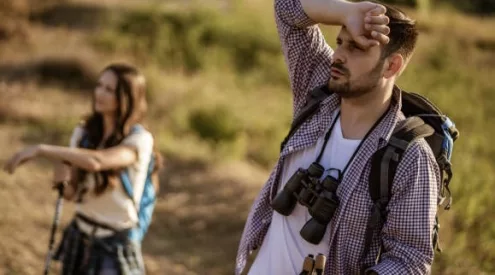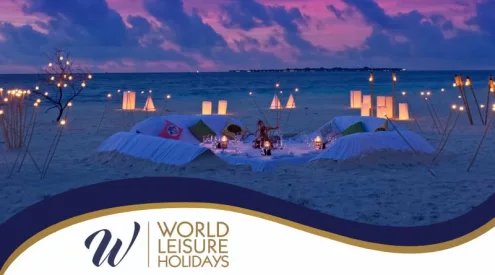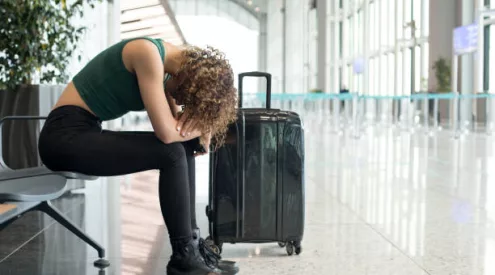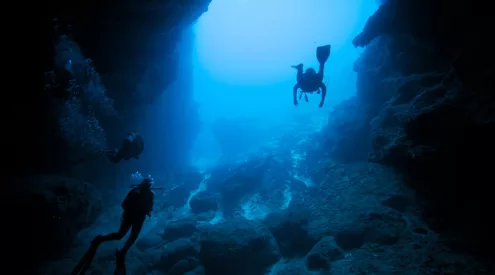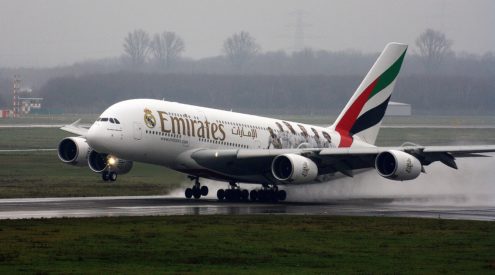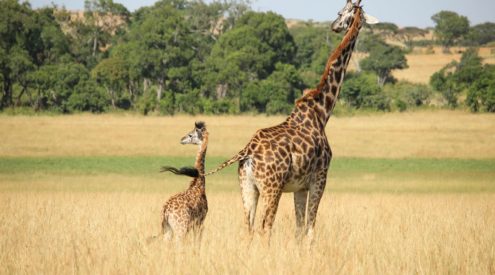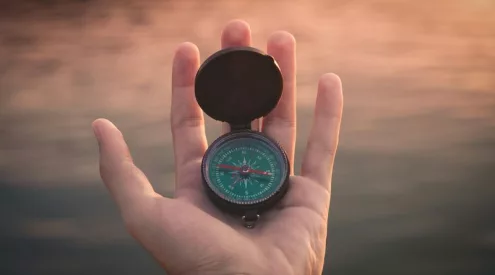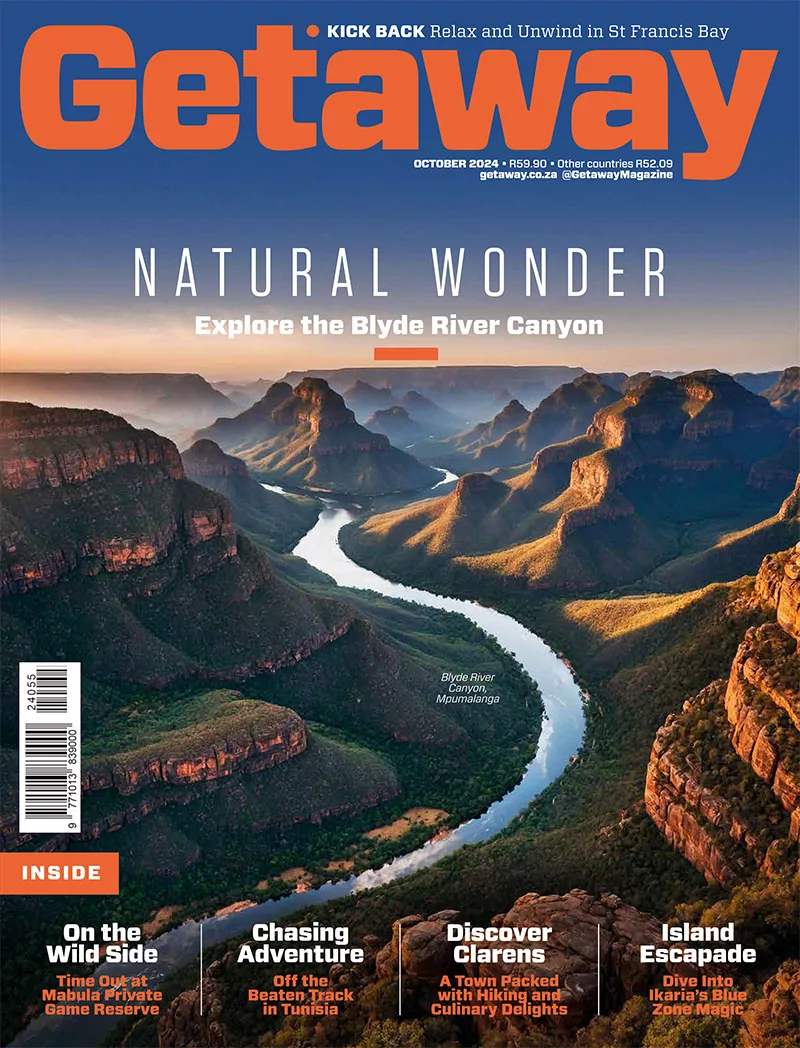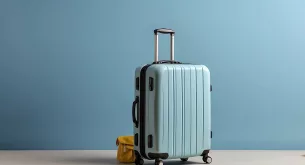Possibly the crème de la crème of African safari destinations, the Okavango Delta has an allure and mystery about it that pegs it as a favourite on many a bucket list.
You’ll soon find yourself being seduced by rosy sunsets, quiet remoteness and a dazzling array of wildlife. The winding waterways, vast grasslands and many palm-fringed islands of the Delta teem with birds and game. It’s a place where vivid blue sky meets shimmering water, tiny reed frogs hang out on papyrus and African Jacana expertly hop between lime-green lily pads. It’s a chance to hear the call of an African Fish Eagle and glide through the reed-lined channels in a mokoro (dugout canoe).
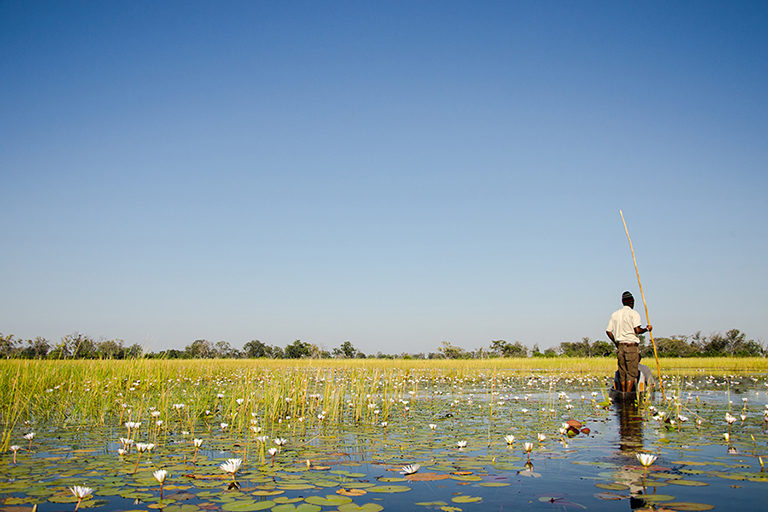
A mokoro trip is one of the best ways to experience the winding channels and waterways of the Okavango Delta. Photo by Claudia Hodkinson.
Here are the best ways you can experience this unique wilderness, as well as when to go.
1. Fly-in safari
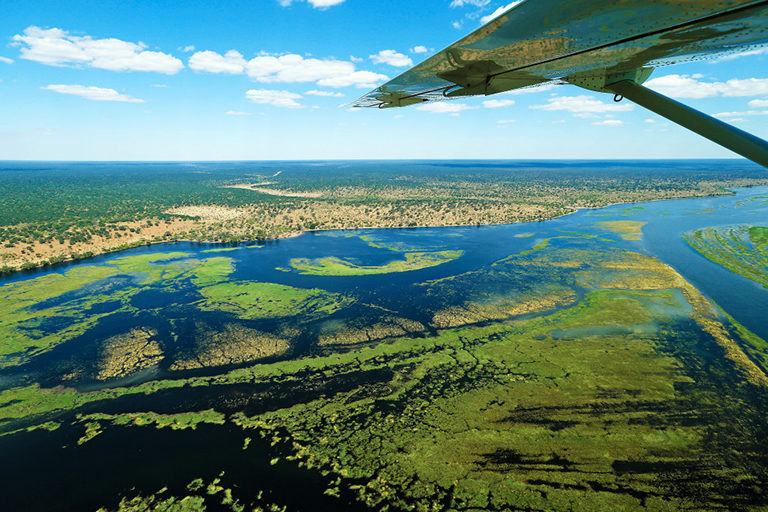
A charter flight over the Okavango Delta will give you an incredible aerial perspective of this vast landscape. Picture by AST.
By far the most popular and convenient option is to opt for a fly-in safari to one of the many safari camps dotted in the Delta. It’s not always the cheapest choice, but it does afford one a quick and easy passage to this remote location. It also works well when linking different regions in Botswana together. The Okavango Delta, Savute and Chobe is one such itinerary. With a few modestly priced camps now available on the market, a fly-in safari makes it the first choice for most travellers. Furthermore, it allowed you to combine lodges that had water-focused activities, like boat and mokoro rides, with camps that had land-based activities, like game drives and walks.
Bush walks
Walking in an area you know was the stomping ground of a pride of lions the night before can sure get the pulse racing. It’s a real privilege to be able to do a walking safari in the Okavango Delta. There’s a scent of mystery that hangs in the air about what lies around the next corner. Seeing one of the Big-5 on foot or simply being close to nature makes this a favourite wilderness activity in Botswana.
Night and day drives

Taking an open 4×4 game drive in the Okavango Delta will give you the opportunity to get up close to big game and photograph wildlife. Photo courtesy of Africa wild lodges.
With thousands of hectares of private Botswana wilderness to explore, you rarely see any other vehicles. A great mix of different wildlife species – from common hippo, elephant and buffalo to unique red lechwe and sitatunga – can be seen from your open game drive vehicle. It’s also a great activity for keen photographers. Your afternoon game drive often morphs into a night drive on your way back to camp. It’s a great time to spot your crepuscular (dusk and dawn) and nocturnal animals like the Verreaux’s eagle-owl, nightjars, springhare, civet, female leopard, scrub hare, bushbaby, and spotted hyena.
Hot air balloon
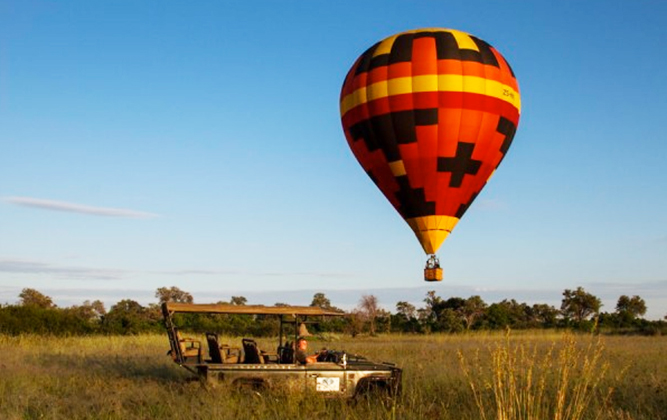
Viewing Botswana’s game from the air is a bucket-list moment. Photo courtesy of Apta.
Imagine gliding silently over a herd of elephant or flying just above a snaking waterway dotted with hippo? Few experiences can top a hot air balloon ride over the Okavango Delta. Hot air balloon trips run from May-30 Sep each year and are weather dependent. You’ll have a chance to photograph the Delta from a whole new perspective and experience the thrill of floating in the air. It’s not a cheap experience, but it’s a once-in-a-lifetime opportunity that few get a chance to do.
2. Mokoro safari

Mokoro guides expertly punt you through the channels and winding waterways of the Okavango Delta. Photo by Sanctuary.
A mokoro is arguably one of the best ways to experience the swampy, marshland of the Okavango Delta. Springing from the mountains in Angola, the Okavango River makes its way over an enormous 1200 kilometres before coming to rest in the dry Kalahari sands of Botswana. Never existing into the Indian Ocean, it branches out into papyrus swamps, lush waterways and around islands dotted with palms. With changeable water depths and tricky passes that demand manoeuvrability, it’s no wonder that a mokoro makes the perfect mode of transport.
Mokoro trips are offered throughout the year by lodges that have access to permanent water or only seasonally if water levels change in the area. These usually take the form of morning or afternoon excursions, exploring the channels and waterways for birds and animals. There are also multi-day mokoro trips on offer.
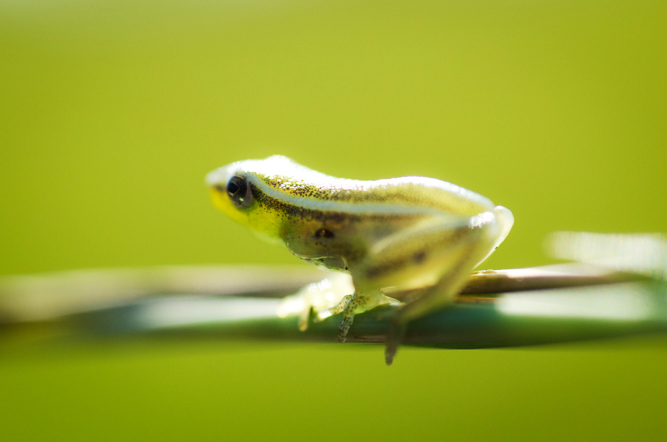
Get up close to tiny reed frogs, darting kingfishers and iridescent dragonflies. Picture by Claudia Hodkinson.
3. Mobile safari
With budget and luxury options to choose from, mobile camping safaris offer a unique way to experience the Okavango Delta. Setting up camp in different locations along a planned route, mobile safaris are a great way of covering several regions into one trip. Shorter options, that only focus on one area, are also possible if time is restricted. Ranging from a couple of days to two-weeks, mobile safaris promise to deliver a wilderness experience similar to those undertaken by early explorers. Surrounded by the unfenced wild of Botswana and sleeping under canvas tents beneath a star-studded sky, a mobile safari puts an adventurous spin on the classic lodge safari.
Those on the budget-end of the mobile spectrum can expect to be more hands-on: helping with preparing meals (often with a camp cook), pitching dome-tents and even starting a campfire for the night. Your professional guide will take you out on daily game drives (often en route to your next campsite) in search of the best wildlife the area has to offer. In most cases, you’ll also have the opportunity of doing night game drives and mokoro rides on your safari.
The more luxurious mobiles offer varying degrees of creature comforts: fully prepared sit-down meals, cosy bedrooms decked with Persian rugs, freestanding baths and camp staff that cater to every guest need. Camps will be set up prior to arrival, with guests only having to relax and toast the sunset with their favourite sundowner drink in hand.
4. Self-drive safari
If you have more time on your hands and a 4×4 vehicle, then a self-drive option is the way to go. For those that don’t own a 4×4, then hiring a vehicle – with or without camping gear – is possible. You can speak to a travel consultant about putting a self-drive itinerary together, including relevant car hire and park fees. Camping, at campsites along a chosen route, is the most popular option. You’ll likely be setting up tents, making a fire and cooking al fresco meals.
Campsites need to be booked well in advance, so it’s best to plan at least six-twelve months in advance. If you like the idea of a self-drive but would prefer staying in camps or lodges along the way, that can also be arranged. You can then make use of the scheduled activities and prepared meals at each camp. Joining a group on an overland safari is also a great budget option for many travellers.
When to go
The Okavango Delta is a year-round destination to visit, with each season bringing something different. A popular time for guests to travel to Botswana is during the dry season (May to October). Not only is it cooler with less rain, but the bush thins, making it easier to spot game. Water levels are also higher over this time, with activities like mokoro and boat rides possible at water-based camps. It’s also considered peak season, with more tourists and prices at their highest.
The green or emerald ‘wet’ season in Botswana (November to April) also has several advantages. The short afternoon thunderstorms turn the bush into a green, scenic landscape. Migrant birds flock back to the area to nest and breed, baby animals are plentiful and predators are in good numbers. Temperatures can get very hot, with water levels receding, exposing more dry land. This is perfect for game drives and bush walks. One can also get good deals over this period, with prices dropping. Ultimately, your budget, length of stay and interests will dictate when you go.
ALSO READ: 5 Unique underwater caves in South Africa

